This website uses cookies so that we can provide you with the best user experience possible. Cookie information is stored in your browser and performs functions such as recognising you when you return to our website and helping our team to understand which sections of the website you find most interesting and useful.
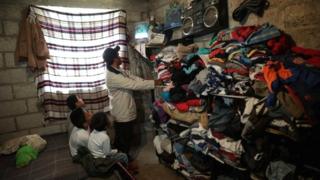 Image copyright Reuters
Image copyright ReutersSchool lessons have resumed in Mexico but with the number of coronavirus infections still high, children will not yet return to classrooms.
Schools were among the first institutions to close as the virus began to spread through the country in March.
As many Mexican families do not have access to the internet, classes will be broadcast on TV.
Official figures suggest 93% of homes have access to TV.
Mexico has one of the highest coronavirus death tolls in the world. Since the pandemic started, 61,450 people have died with Covid. Only the United States and Brazil have had higher death tolls.
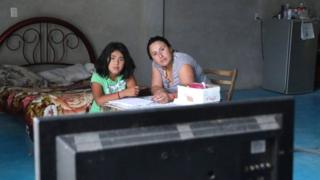 Image copyright Reuters
Image copyright ReutersThe decision to teach children through televised programmes rather than online was taken because only half of Mexicans have access to the internet, and not all of those have computers.
Five-year-old Óscar Hernández (below) is one of the millions of students who tuned into the lessons.
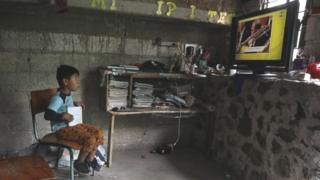 Image copyright Reuters
Image copyright ReutersThe curriculum is meant to mirror the one that would have been taught in public schools had they not closed amid the pandemic.
Among the subjects taught is music.
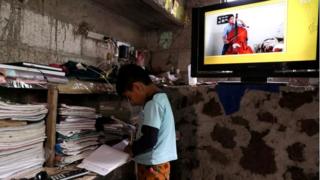 Image copyright Reuters
Image copyright ReutersPhysical exercise, too, is included in the televised offering, with gold-medal-winning diver Rommel Pacheco encouraging children to stretch.
But some children prefer to stick to their own exercise regime outdoors:
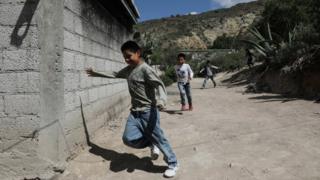 Image copyright Reuters
Image copyright ReutersWhile some parents have welcomed the resumption of classes, others say that the virtual lessons are tough on working parents.
Someone has to be present to ensure the children, especially the younger ones, tune into the right broadcast, choose the correct lessons for their age and, crucially, pay attention to the classes.
There is also homework to be done after the lessons.
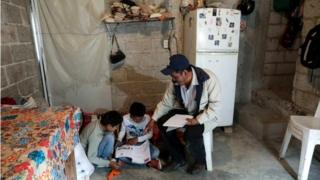 Image copyright Reuters
Image copyright ReutersMany working parents have had to enlist the help of grandparents to supervise during the TV lessons.
Seven-year-old Julieta was helped by her mother Karina (below) but not all parents can take the time to supervise.
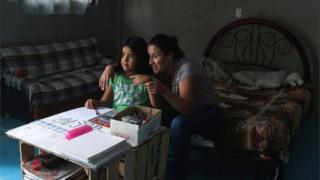 Image copyright Reuters
Image copyright ReutersSome parents and carers reported being confused by the schedules, which are spaced out across the day for the different grades, while others said they did not have the accompanying study materials.
The classes are being transmitted on free-to-air channels.
All pictures subject to copyright.



 Africana55 Radio
Africana55 Radio 
